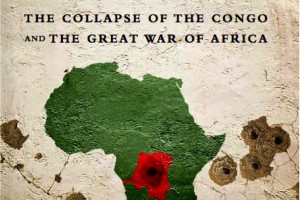I’ve just finished reading Dancing in the Glory of Monsters by Jason K. Stearns, a treatise examining the wars in the Democratic Republic of Congo. An estimated five million people have died due to the conflict since 1996, and yet, the nation never garnered more than a fraction of the international attention given to other far less costly humanitarian tragedies. If news filters to the West of the conflict, it is not an exposition of its players or causes, but of a cursory example of its violence in the country’s east.
I really enjoyed this book, for a few reasons. Key among these is the author’s attempt to see the cost of war from all involved parties. Stearns does not portray groups in moral absolutes with tragedies examined for one side and ignored for the other. He also navigates through different levels of governance, linking political events with their repercussions on the ground. But perhaps what I appreciate most is the author’s exposition as to the causes of the war, as viewed on its own terms, going back into the history of each country involved.
For it is important to note that the wars in the Congo was not just about the country itself, but about the interests of principally Rwanda, Uganda, Angola and Zimbabwe. Though the wars are officially over, the country is still a broken one mired in violence. In the book’s final pages, the author examines why he believes that is.
